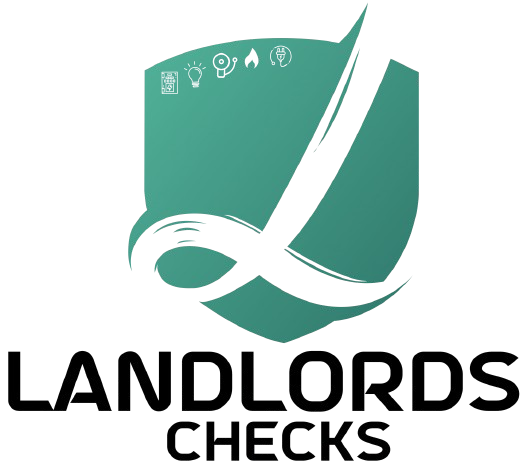This article aims to decode the procedures involved in obtaining an Electrical Safety Certificate, shedding light on the legal obligations intertwined with it. Furthermore, we’ll delve into the indispensable role that engineers play in conducting meticulous electrical inspections to safeguard the well-being of occupants and ensure compliance with regulations.
Understanding the Importance of EICRs:
Electrical Safety Certificates, or EICRs, are essential documents that verify the condition of electrical installations within a property. These certificates are particularly crucial for homeowners, landlords, and businesses, as they attest to the safety and compliance of electrical systems with prevailing regulations. EICRs not only contribute to the well-being of occupants but also play a significant role in preventing electrical accidents and fires.
Legal Obligations:
The legal framework governing EICRs is primarily outlined in the Electricity at Work Regulations 1989 and the more recent Electrical Safety Standards in the Private Rented Sector (England) Regulations 2020. The latter is especially pertinent for landlords, as it mandates that rental properties must undergo electrical inspections and testing at least every five years.
For property owners and landlords, the legal obligations include:
-
Regular Electrical Inspections: Property owners must arrange for regular electrical inspections by qualified and competent engineers. The frequency of these inspections may vary, but a minimum of every five years is required for rental properties.
-
Issuing EICRs: The engineer conducting the inspection will produce an Electrical Installation Condition Report (EICR) detailing the condition of the electrical installations. This report categorizes observed issues as either ‘unsatisfactory,’ requiring urgent attention, or ‘satisfactory,’ indicating compliance with safety standards.
-
Remedial Actions: If the EICR identifies any ‘unsatisfactory’ elements, property owners must address them promptly. This may involve repairing or replacing faulty wiring, outlets, or other electrical components.
-
Providing EICRs to Tenants: Landlords are required to provide a copy of the EICR to existing tenants within 28 days of the inspection. For new tenancies, the EICR must be provided before the tenant moves in.
-
Notification to Authorities: In certain cases, property owners may be required to submit the EICR to the local authority or other relevant entities, demonstrating compliance with safety regulations.
Certification Procedures:
The process of obtaining an EICR involves a series of systematic procedures aimed at evaluating and certifying the safety and compliance of electrical installations.
-
Engaging a Qualified Engineer: Property owners must engage the services of a qualified and competent engineer registered with a recognized electrical competence scheme. The engineer’s expertise is crucial in ensuring a thorough inspection.
-
Visual Inspection: The engineer will conduct a visual inspection of the property’s electrical installations, identifying any visible signs of damage, wear, or non-compliance.
-
Testing and Assessment: Comprehensive testing will be conducted to assess the condition of the electrical installations. This may involve insulation resistance testing, earth loop impedance testing, and other diagnostic procedures.
-
Issuing the EICR: Based on the inspection and testing results, the engineer will compile the EICR. This document provides a detailed overview of the condition of the electrical installations, categorizing findings and recommendations for necessary remedial actions.
-
Remedial Actions and Re-Inspection: If ‘unsatisfactory’ elements are identified, property owners must address them promptly. The engineer may conduct a re-inspection to verify that remedial actions have been implemented successfully.
-
Issuing the Final EICR: Once all necessary remedial actions are completed and verified, the engineer issues the final EICR, certifying that the electrical installations comply with safety standards.
Role of Engineers in Conducting Thorough Electrical Inspections:
Engineers play a pivotal role in ensuring the effectiveness and integrity of the EICR process. Their expertise is crucial in conducting thorough electrical inspections, identifying potential hazards, and providing recommendations for necessary improvements.
-
Expertise in Electrical Systems: Qualified engineers possess in-depth knowledge of electrical systems, enabling them to identify potential issues that may compromise safety or compliance with regulations.
-
Accurate Testing and Analysis: Engineers use specialized equipment to conduct precise testing and analysis of electrical installations. This ensures a comprehensive evaluation of the system’s condition.
-
Recommendations for Improvements: Based on their findings, engineers provide recommendations for remedial actions to address any identified issues. This proactive approach contributes to the prevention of electrical hazards.
-
Verification of Remedial Actions: Engineers may be involved in verifying that remedial actions recommended in the initial EICR are successfully implemented during re-inspections. This ensures the long-term safety and compliance of electrical installations.
In conclusion, decoding the procedures involved in obtaining an Electrical Safety Certificate (EICR) in the UK unveils a meticulous process designed to prioritize the safety of occupants and ensure compliance with legal obligations. Property owners and landlords must recognize the pivotal role of qualified engineers in conducting thorough electrical inspections, contributing to the overall well-being of residents and the prevention of electrical hazards. The EICR becomes not only a legal requirement but a testament to a commitment to electrical safety within properties.





